17 Christmas Fire Safety Tips from Firefighters and Other Safety Experts

With the lights around the Christmas tree twinkling, the candles burning bright, and the glow of the warm fireplace, your home is never quite as cozy as it is during Christmastime. It can feel downright magical this time of year. However, while your home may look prettier than ever during the holidays, those warm and fuzzy additions also bring an increased risk of fire to your humble abode. In fact, between 2013 and 2017, U.S. fire departments responded to an average of 940 home fires started by Christmas trees and other holiday decorations every year, according to the National Fire Protection Association. But with these expert-backed Christmas fire safety tips from former firefighters and other safety professionals, you can still make your home festive, while also keeping it safe this holiday season.
1
Don’t use your oven for storage or heat.
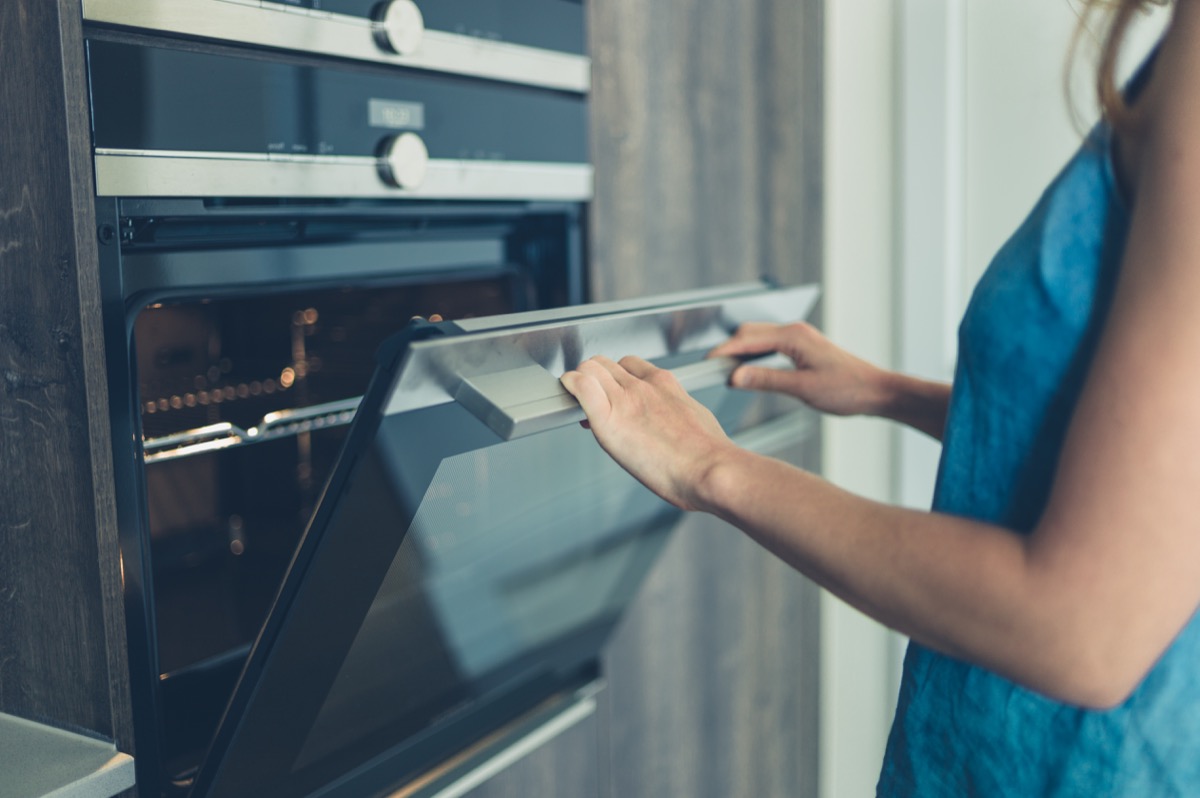
Though many people place their cookie sheets and other bakeware in their ovens when they’re not using them, it’s never a good idea to use the appliance as storage space. The Burbank Fire Department explicitly warns against it, noting that something flammable could accidentally be left behind and cause an oven fire.
Also, even when it gets extra cold this Christmas season, think twice before using your oven or stove as way to provide some extra heat to your home. Chuck Roydhouse, a retired professional firefighter and president of Chimney Safety Institute of America, says that although this is not uncommon for people to do, ovens and stoves are not specifically set up for heating purposes, so it’s unsafe to use them as such.
2
Water your Christmas tree daily.
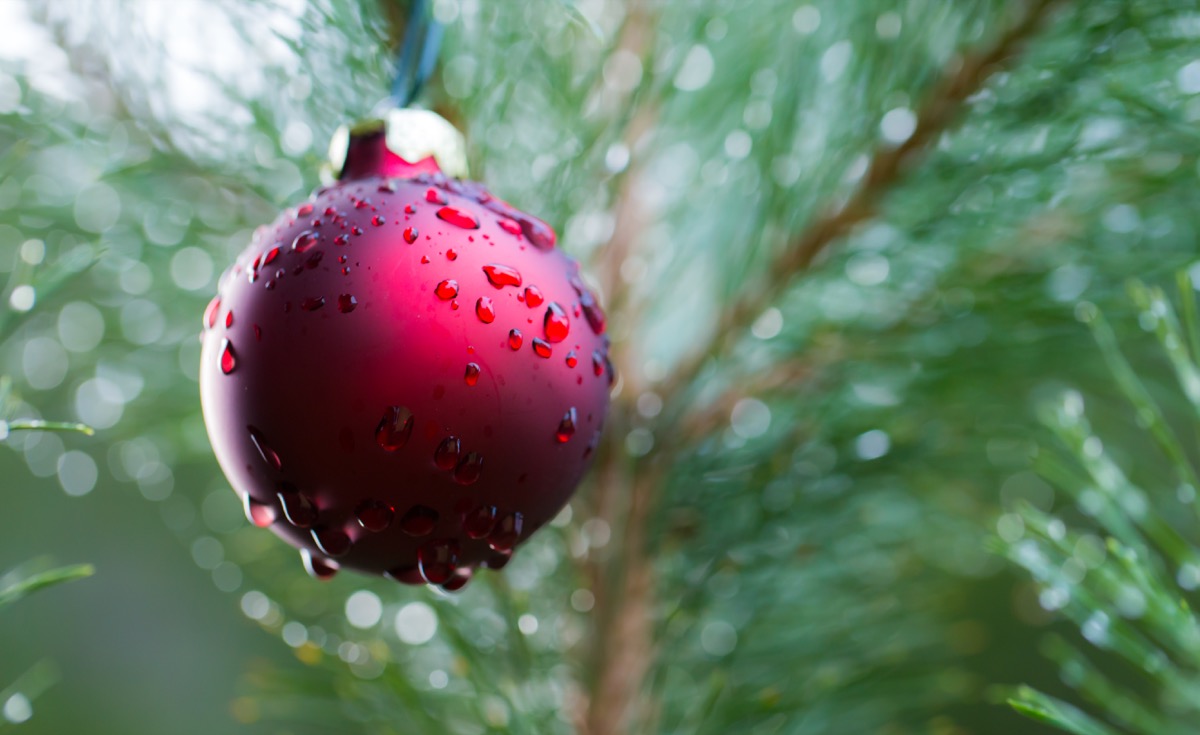
The quickest way to accidentally make your tree go up in flames? Let it go unwatered. Harry Knowles, home safety expert with My Handyman Services, warns homeowners with real Christmas trees to frequently check that their trees don’t have “any tinder-dry areas.” Just one spark anywhere near dry wood can start a fire in a mere 30 seconds, he says.
3
And only put up fire-resistant artificial ones.
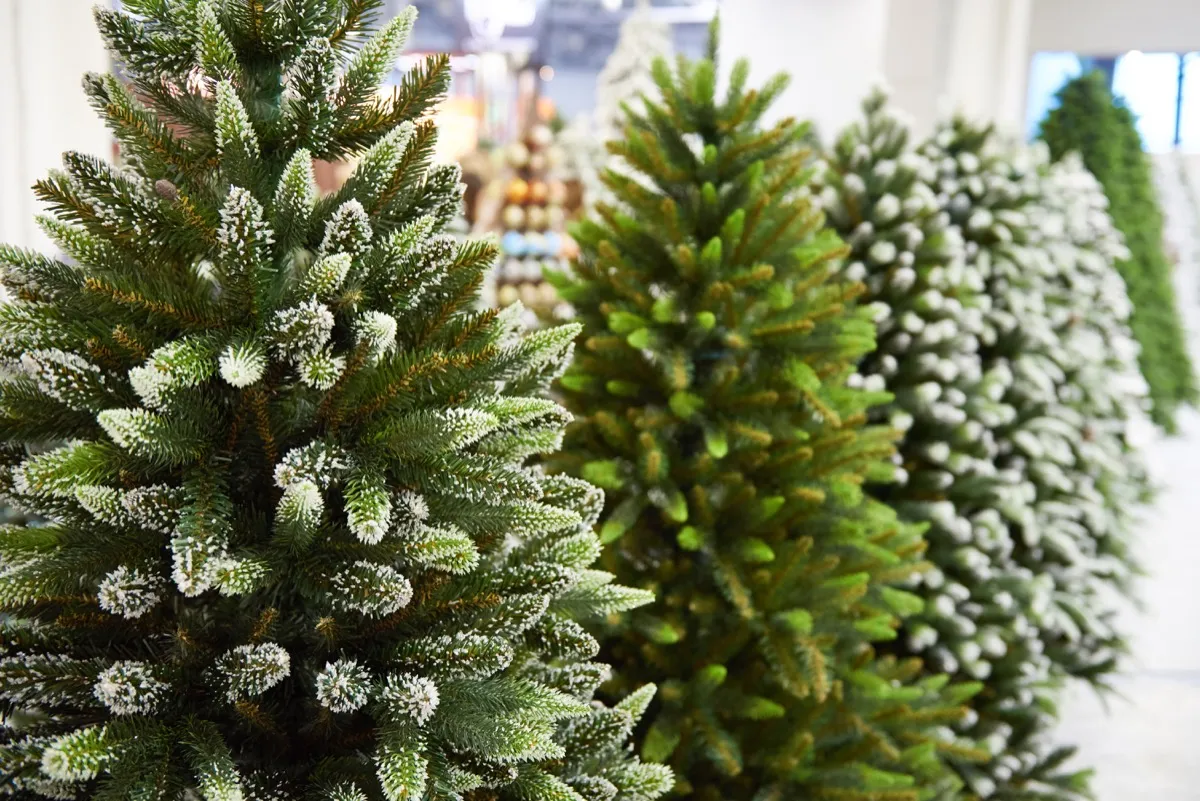
If you’re not looking to keep up with the maintenance and possible danger of having a real Christmas tree, don’t think you’re in the clear with just any ‘ole artificial one you find in a store or online. “When purchasing an artificial tree, make sure it’s fire resistant,” explain the safety experts at First Alert. “While this label doesn’t mean the tree won’t catch fire, the tree will better resist burning and can be extinguished more quickly.”
4
Inspect the lights on your tree.
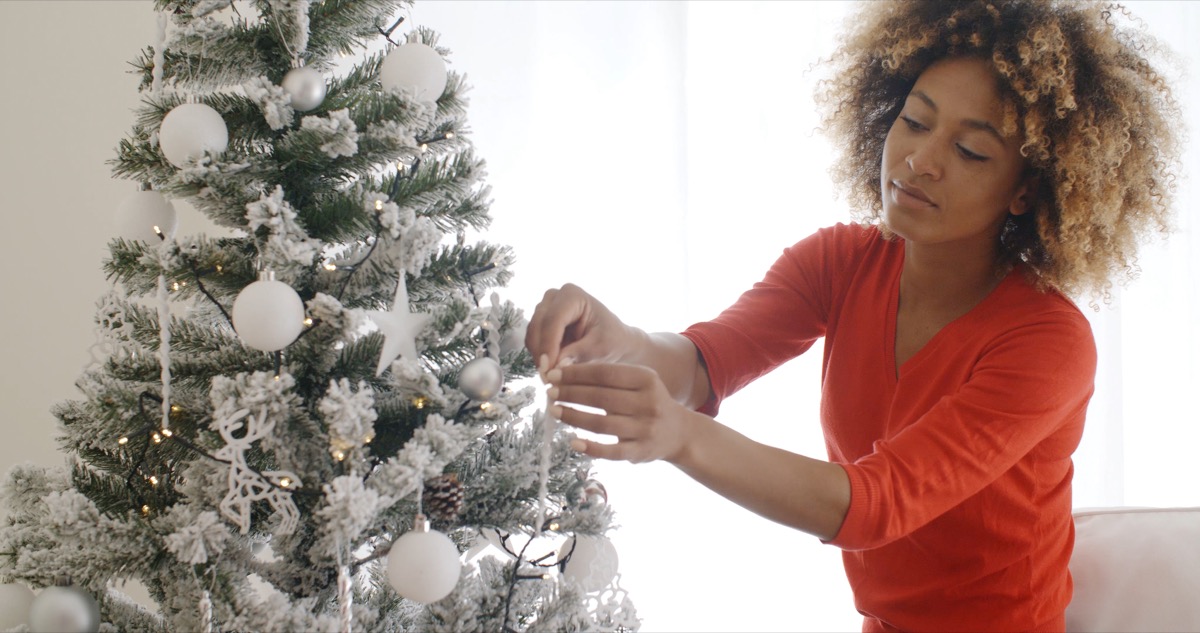
No matter what type of tree you have this season, you should always inspect the lights you’re placing on it. Roydhouse says that all Christmas lights should be “free of any frayed wires or loose edges,” which can easily cause a spark, turning into a fire in a matter of moments. And, if you’ve been using the same strand of lights for years now, it might be worth it to make an upgrade to newer and sturdier lights, just to keep your home as safe as possible.
5
Don’t throw wrapping paper in your fireplace.
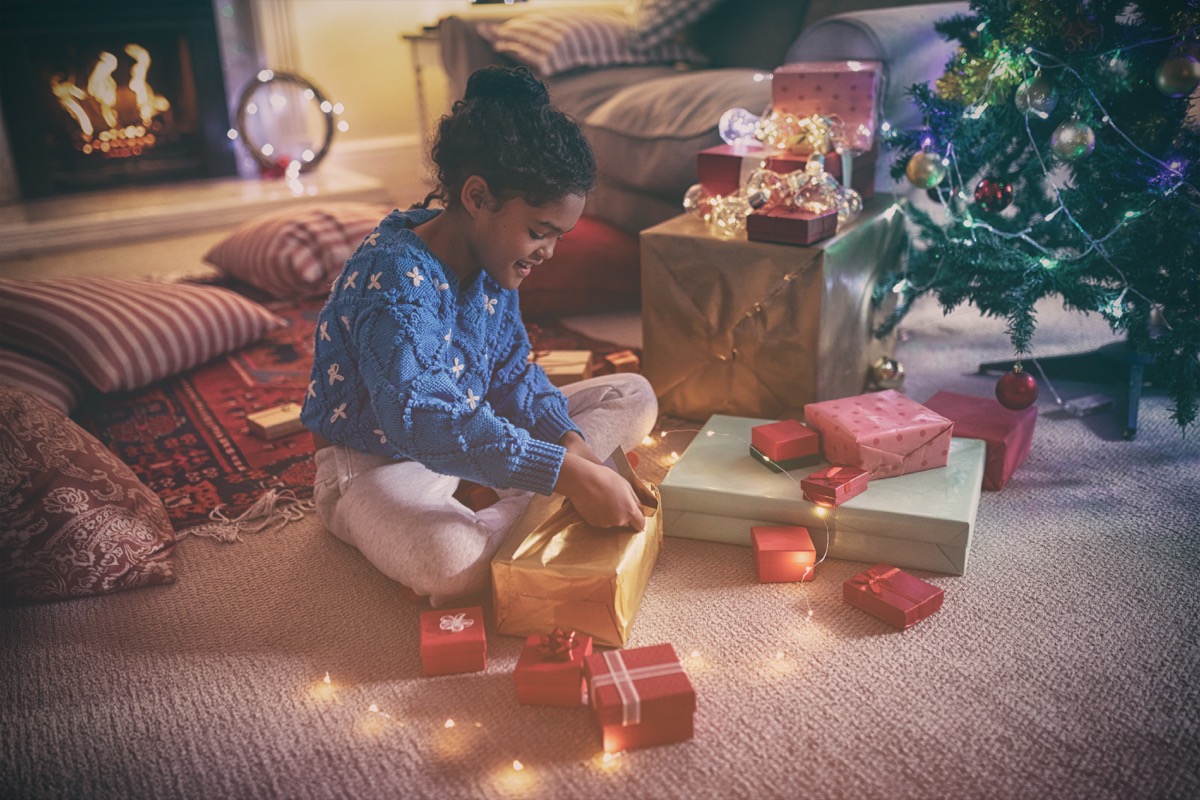
It’s easy to get caught up in the joy and excitement that comes with unwrapping new goodies on Christmas, but be sure to monitor exactly where all that ripped wrapping paper is going—and definitely don’t dispose of it by throwing it in the fire place.
“On Christmas morning, don’t make the mistake of throwing the wrapping paper from the gifts in the fireplace,” says Roydhouse. “Wrapping paper creates way too much heat, and it’s very easy to have a chimney fire that way. It puts too much heat in the chimney, and if you have any combustibles in there, that heat will ignite it.”
6
Follow the “rule of three” when it comes to power strips.
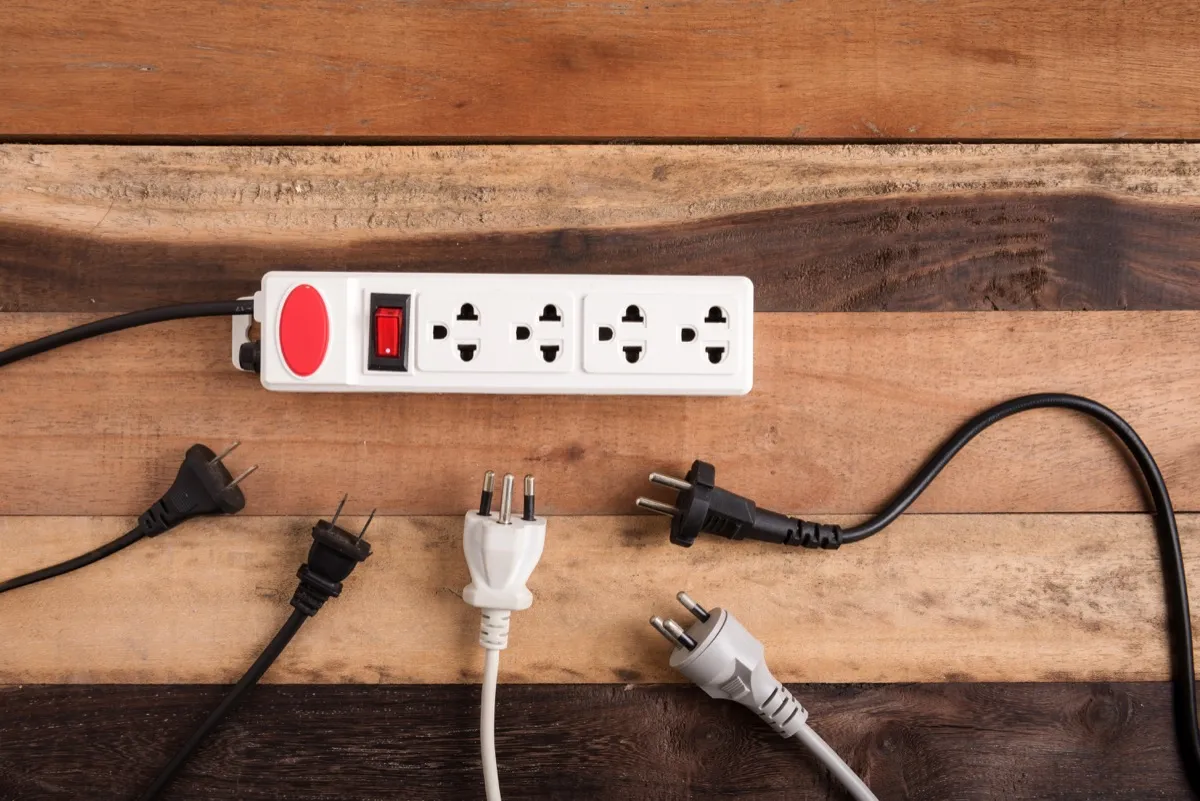
With Christmas lights, space heaters, and all the electronics of everyday life, there’s a lot to be plugged in during the holiday season. And with electrical fires being a real concern, you need to follow the proper precautions. The experts at Mr. Electric, a residential electrical service throughout Canada and the U.S., recommend following the “rule of three” when it comes to power strips, meaning no more than three electronics should be plugged into a single strip at one time.
7
Never use an extension cord or power strip with your space heater.
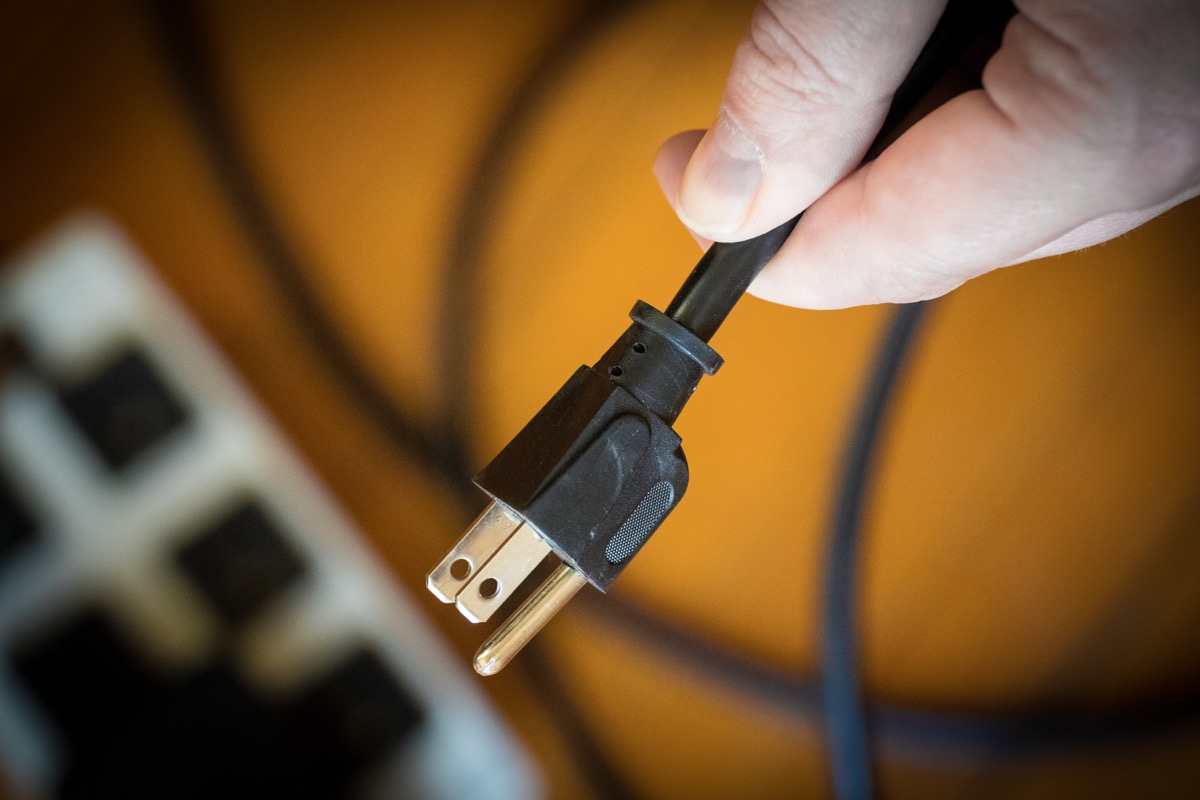
When it comes to space heaters and extension cords, the two should never meet. “When you buy a space heater, it will come with a certain length of cord, and you never want to extend that by using an extension cord,” says Roydhouse. “When you extend the cord length, you overload the cord, and it gets hot. As a result, it can burn through a rug or the insulation and set something on fire, or create an electrical shock. And you never want to plug a space heater into any type of multi-socket power strip—you want to plug it directly into the wall.”
8
And place it three feet away from any and everything.
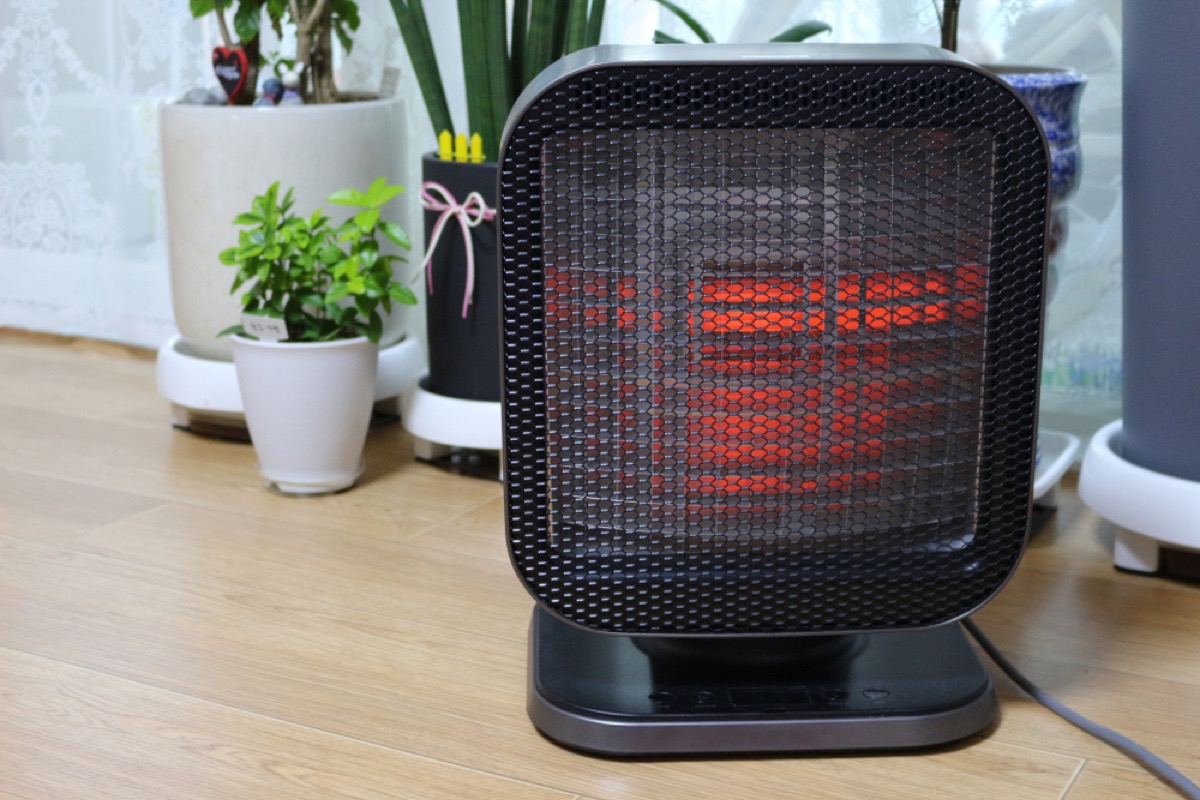
The safety rules for space heaters don’t end with not connecting it to another electrical source. “Space heaters cause thousands of home fires every year. If you use one, make sure that it has at least three feet of clearance on all sides, and keep it located away from kids, pets, and fabrics,” says Diana Rodriguez-Zaba, president of ServiceMaster Restoration by Zaba.
9
Don’t use indoor lights outside.
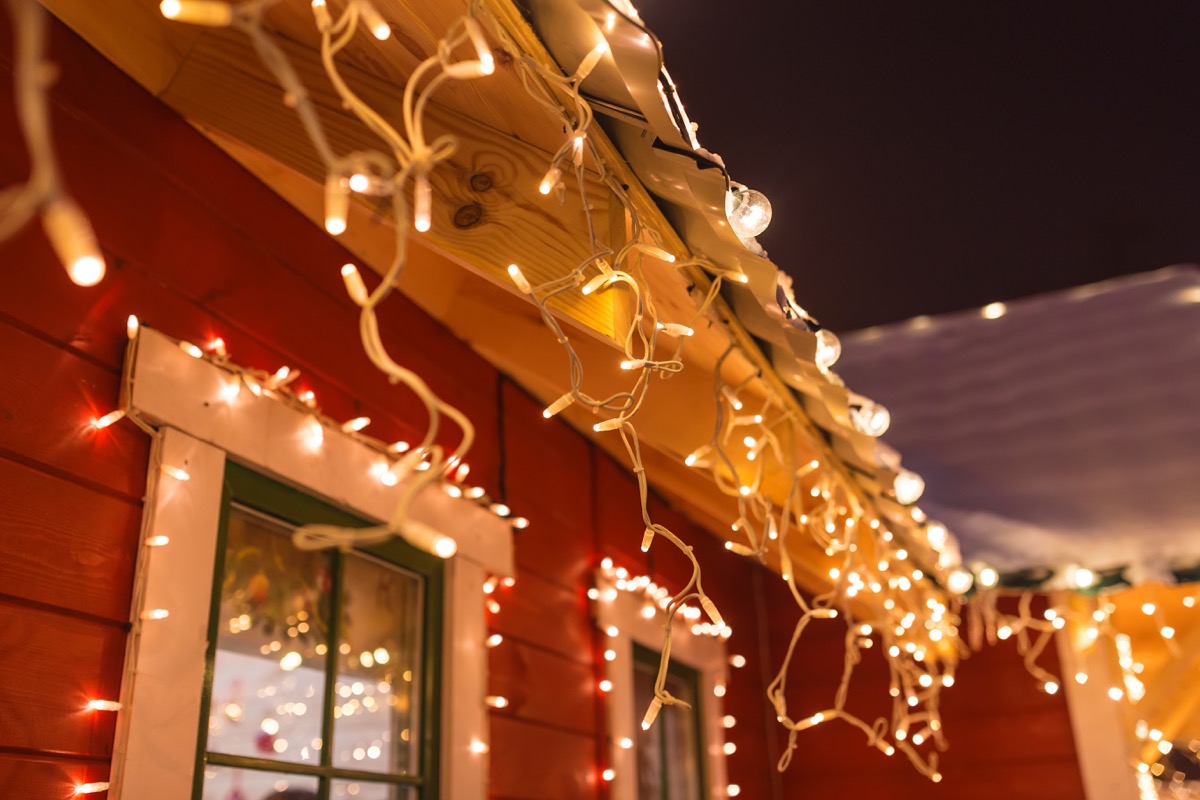
Did you know that there are specific kinds of Christmas lights for indoor versus outdoor use? And if you’re looking for the latter, Knowles says to only get those that are explicitly labeled for outdoor use. Most indoor lights have thinner cords that can easily be damaged and become prone to fire when exposed to harsh weather conditions.
10
And don’t run Christmas lights through windows or doors.
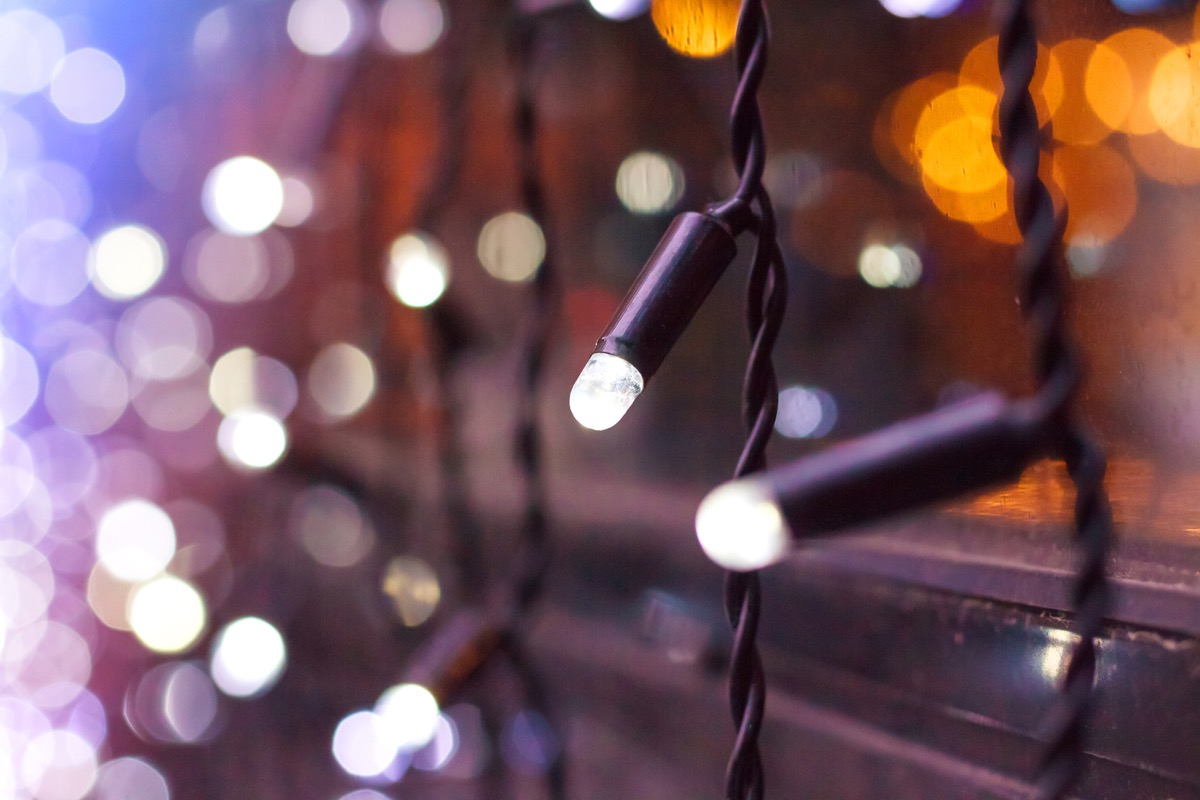
It may seem like a logical option, but never power your outside Christmas lights by running them through your windows or doors. According to the electrical experts at Mr. Electric, doing so can “cause fraying from the constant pressure of the opening and closing motion, making them susceptible to shock, which could easily cause a fire.”
11
Set timers when cooking and baking.
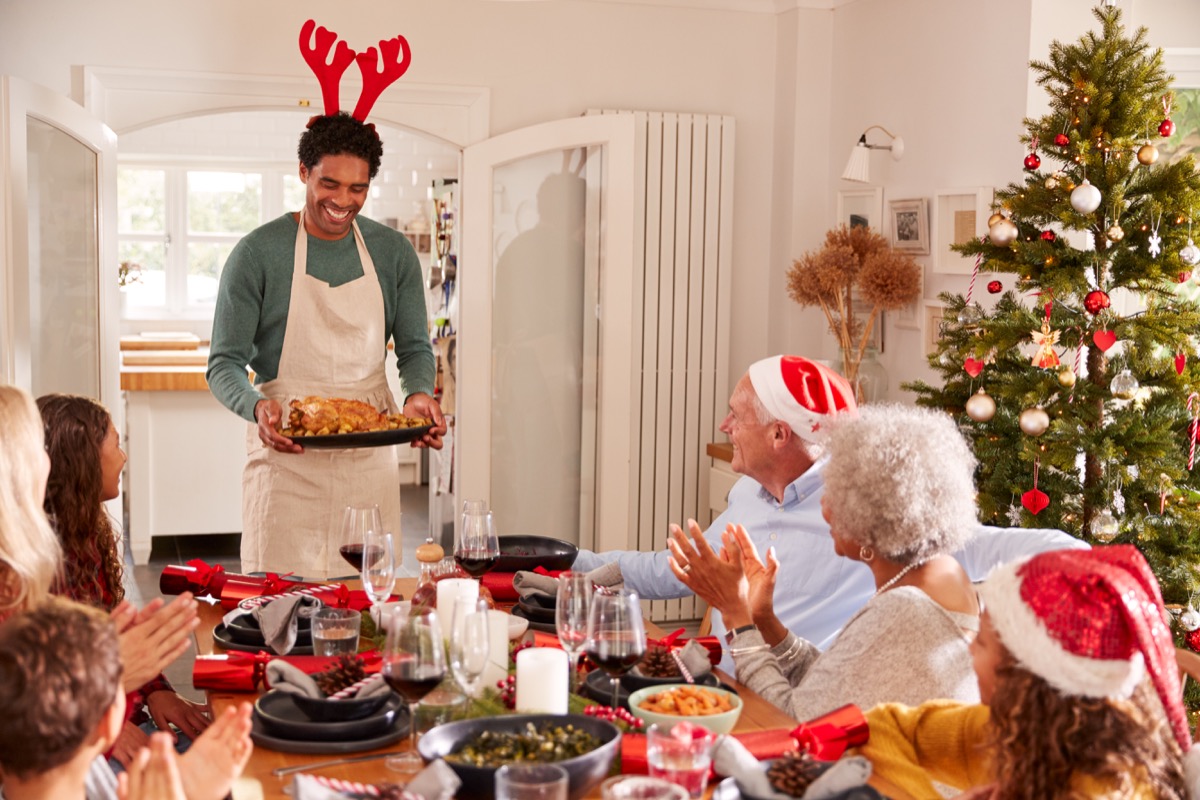
There’s nothing quite like the perfect Christmas meal, but you need to be cautious while preparing your family’s holiday feast. “Take your time with the Christmas cooking, and don’t leave it for the last moment. It can be challenging to prepare a meal with all the guests and excitement around you,” says Cyrus Bedwyr, home improvement expert with Fantastic Services. “Fire accidents caused by a forgotten food are pretty common at this time of the year.”
12
Pay attention to where you put your décor.
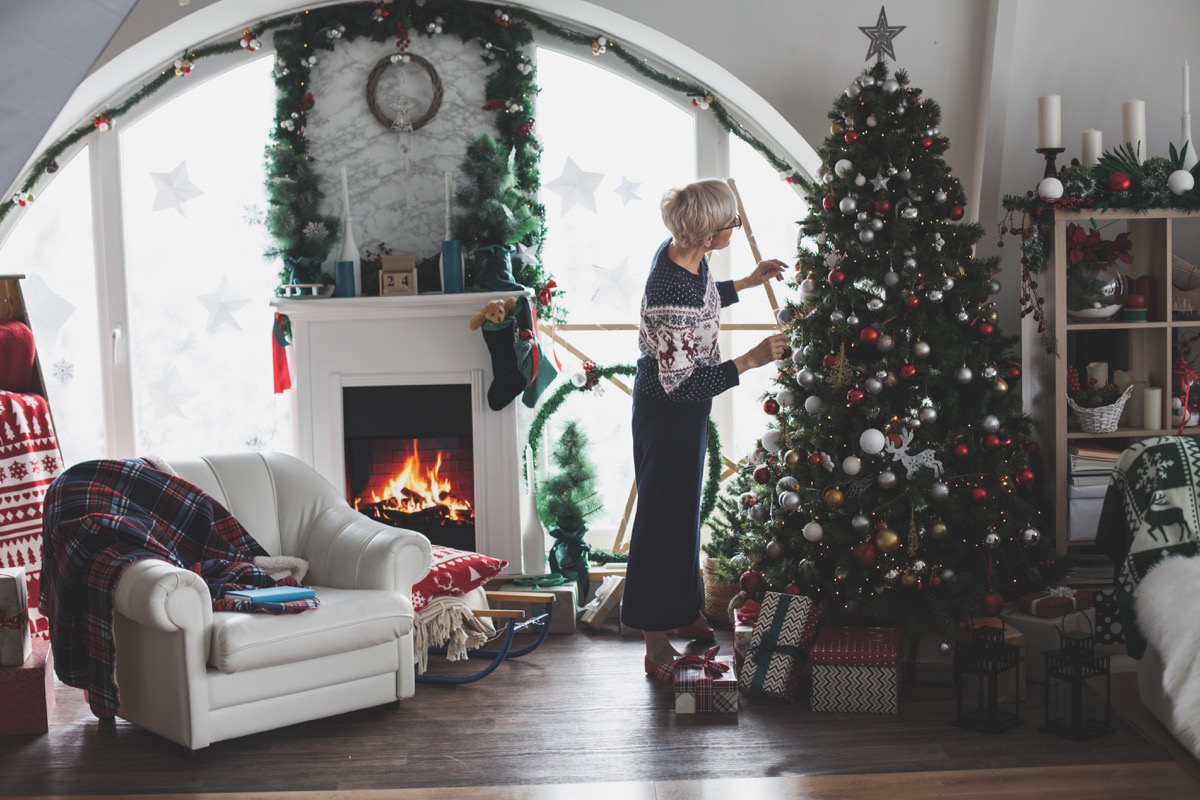
While a fully decorated home for the holidays is certainly beautiful, it’s important that you don’t sacrifice safety in the process. Glenn Wiseman, sales manager for Top Hat Home Comfort Services, says many home fires occur during this time because holiday décor is poorly placed. “For instance, people need to remember and understand the dangers that come when placing their Christmas tree near an electrical baseboard or ventilation system,” he says. “And having any garlands hanging around or over top of such can also be a fire hazard, as well as placing your tree right beside your fireplace.”
13
Get rid of the dead leaves near your house.
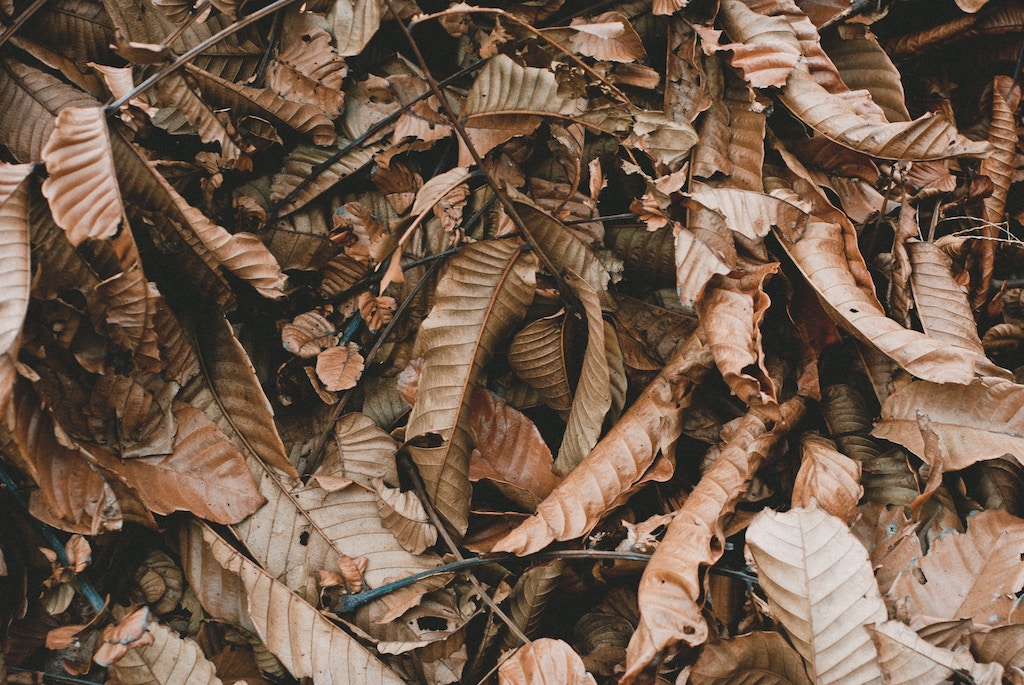
Think about it: Having crisp, dry dead leaves all of your lawn is almost like covering it in kindling. As firefighters of the Orange County Fire Authority warn, dead leaves can easily ignite, so they should be kept far away from the home to prevent a fire that spreads quickly.
14
Have multiple fire extinguishers and know how to use them.
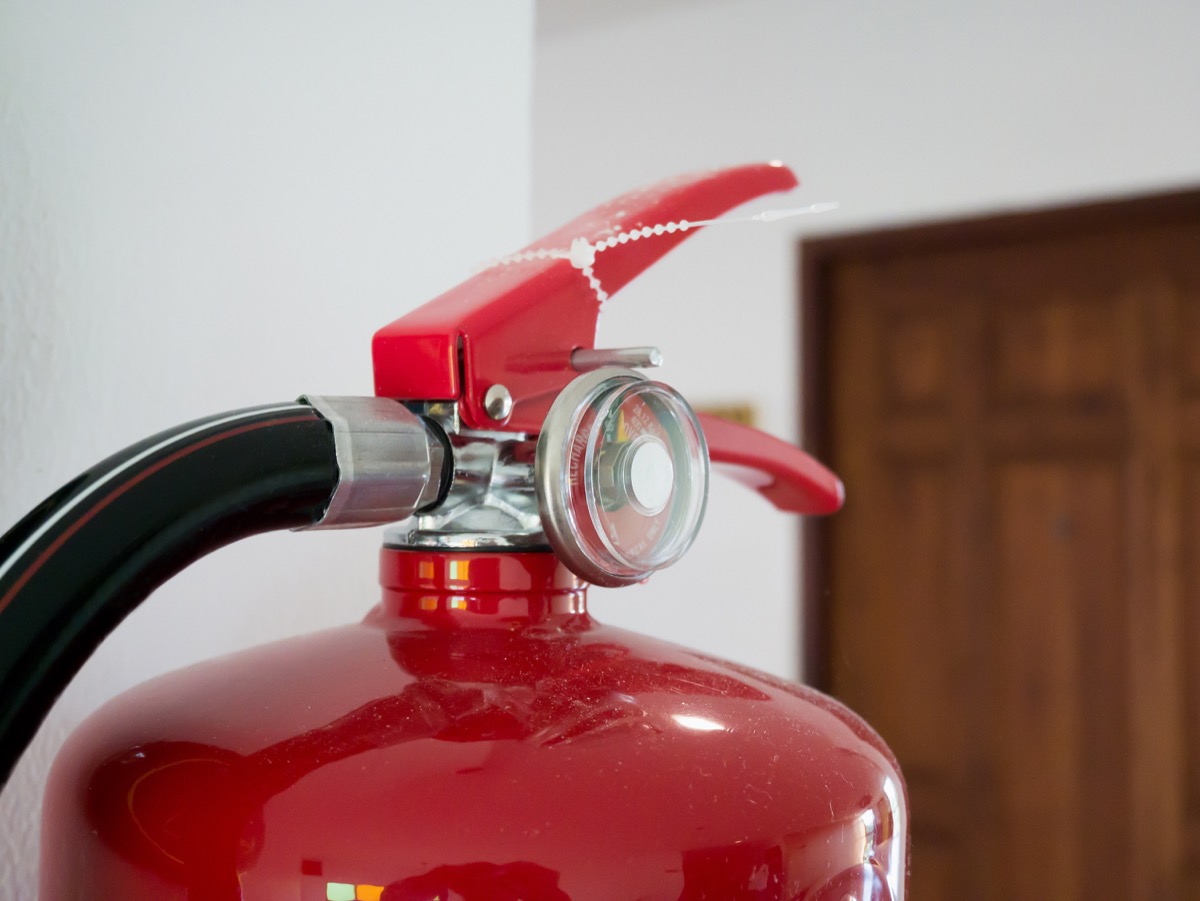
Roydhouse recommends not only keeping a couple of fire extinguishers in your home during the winter, but also learning how to use them properly. As Zack Zarrilli, firefighter and founder of CPR instruction company SureFire CPR, previously told Best Life, you should use the P.A.S.S. method: PULL the pin on the extinguisher; AIM the nozzle at the base of the fire; SQUEEZE the handle to release the extinguishing agent; and SWEEP the nozzle side to side at the base of the fire until it goes out.
15
Exercise caution when it comes to candles.
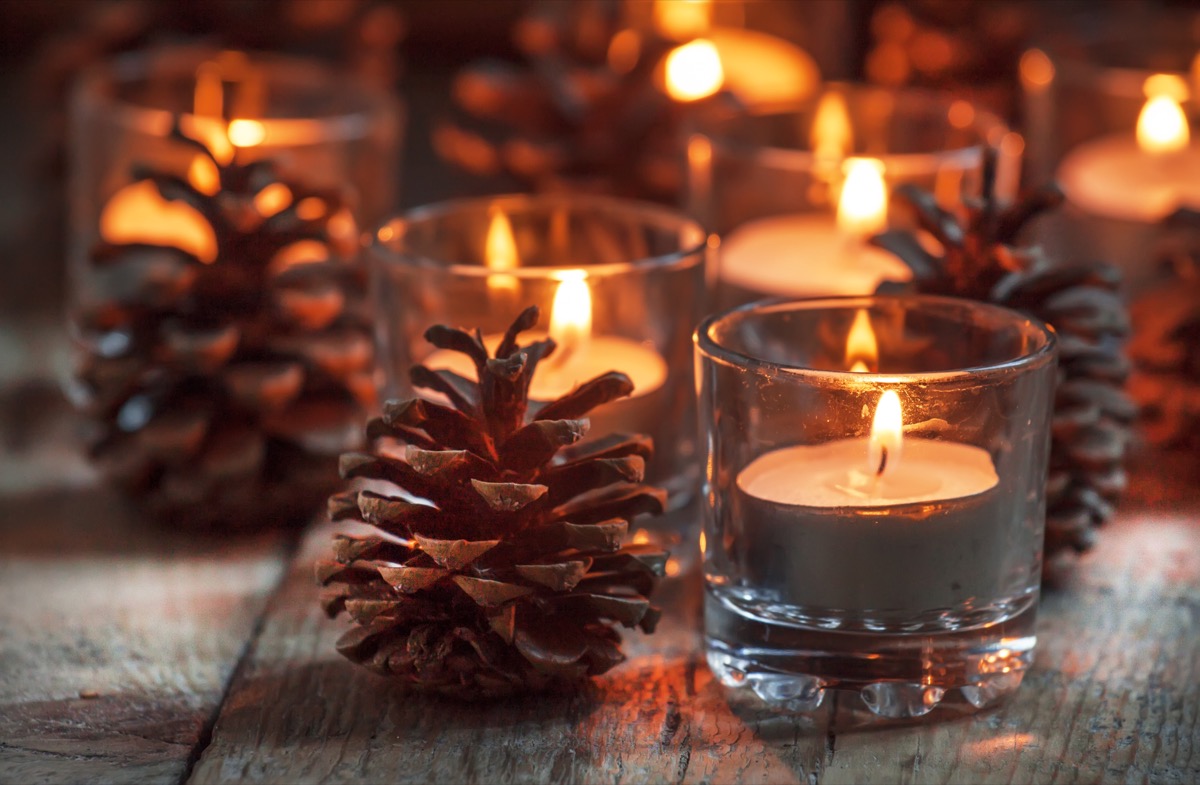
Although candles may be a pretty piece of home décor, having an open flame in your home is an easy way to start a fire. Battery-operated candles are a great alternative if you want the look without the potential risks of an actual flame. But if you do find yourself still wanting to use real candles, Knowles cautions homeowners to place them far away from the Christmas tree and other flammable decorations like garlands, twigs, and flowers.
16
Make sure your home is equipped with functioning smoke alarms.
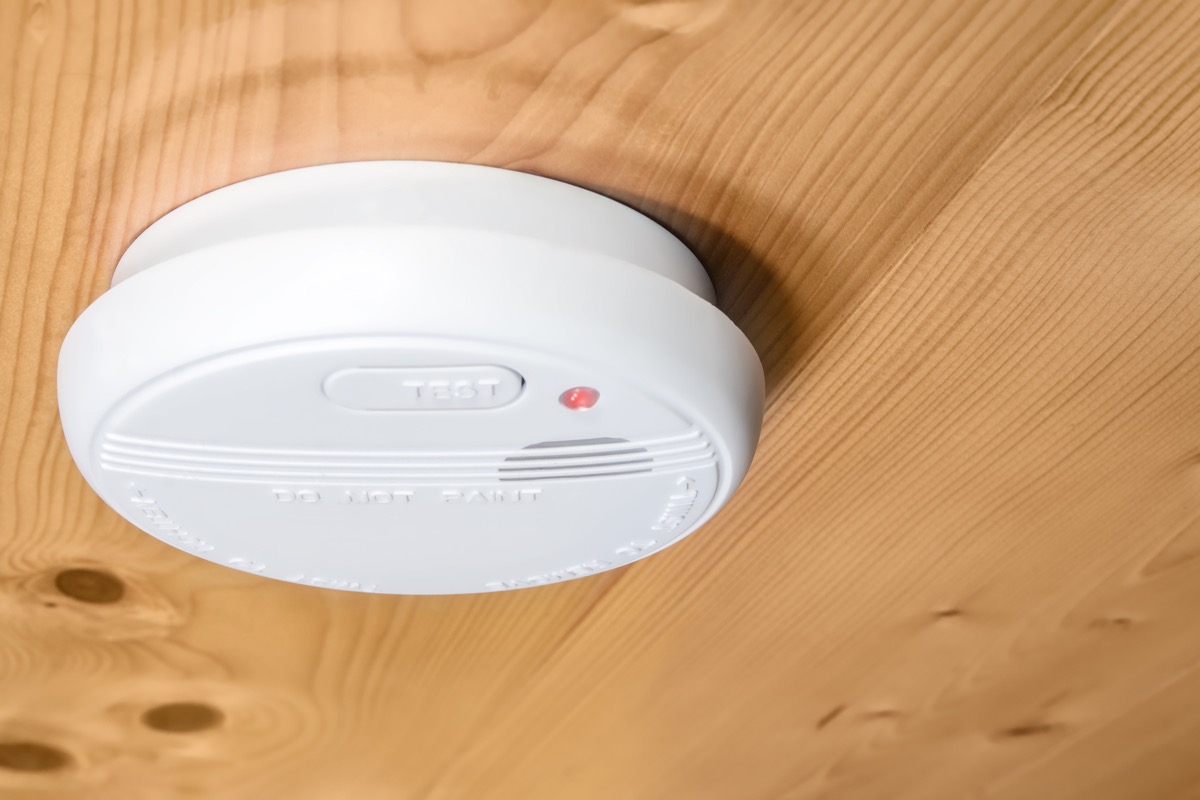
Having a working smoke detector in your home can mean the difference between life or death when it comes to a holiday home fire. The experts at First Alert note that “smoke alarms should be installed on every level of the home, inside every bedroom, and outside sleeping area.” They also recommend you “test alarms every month and change batteries every six months.”
17
Create an emergency escape plan and practice it with your family.

If that smoke alarm goes off, you need to know exactly what to do next. “In the event that your family needs to evacuate your home, every second counts,” the First Alert experts point out. They recommend developing an emergency escape plan with two identified exits from every room and a dedicated meeting spot outside. And this escape plan should be practiced twice a year by the entire family.